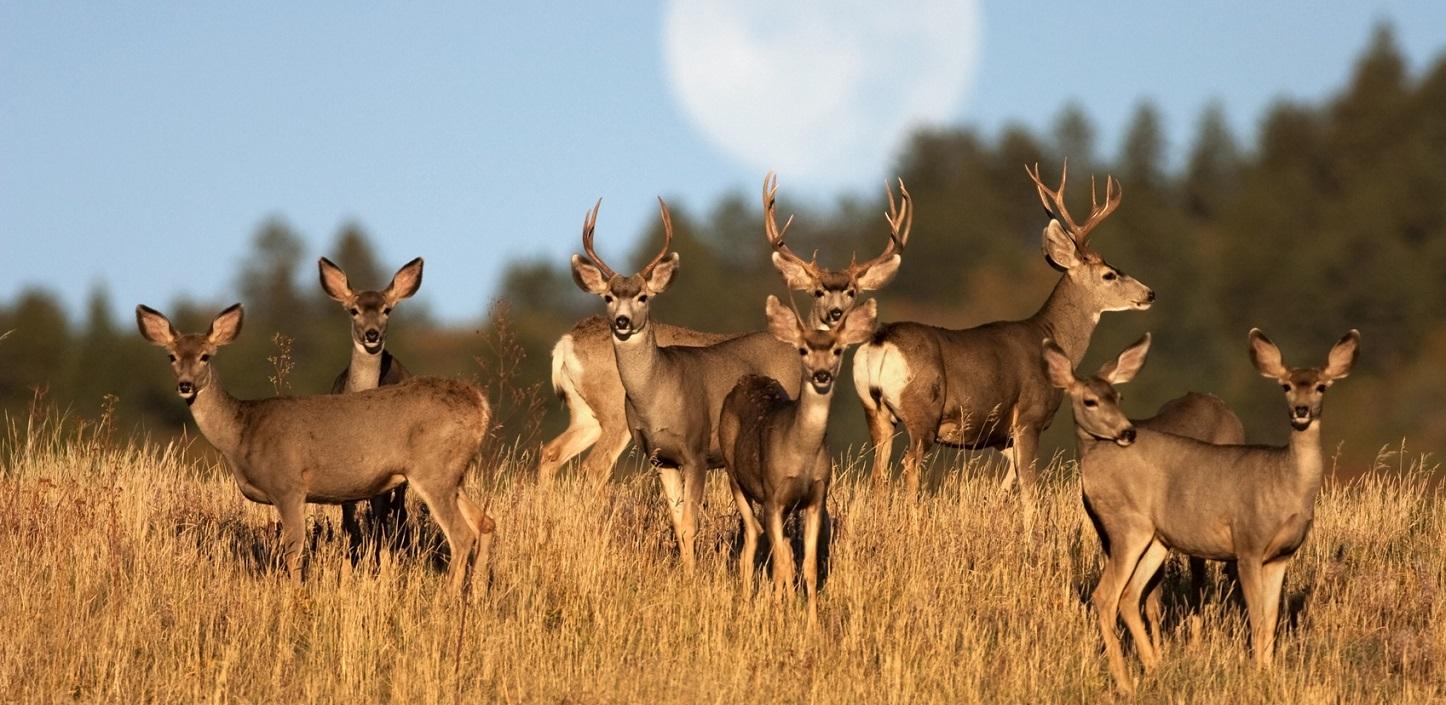
Helping Western stakeholders sustain migrations of big game
To survive the seasonal weather extremes of the American West, big-game species such as mule deer, elk and pronghorn must migrate between summer and winter ranges. Time-worn migration paths, some hundreds of miles long with dramatic changes in elevation, take free-roaming herds across a patchwork of land ownership — private ranches, public government lands, Tribal lands and ever-growing suburbs.
The need to identify and conserve these critical migration pathways and seasonal ranges has never been more important.
In 2024, NFWF continued to invest in efforts to support these iconic and economically vital big-game species. The Foundation’s Western Big Game Seasonal Habitat and Migration Corridors Fund awarded 10 new grants totaling $3 million to help restore habitat and improve migration corridors across seven Western states. The 10 awards leveraged $8.8 million in matching contributions, generating a total conservation impact of $11.8 million.
A grant of $961,300 awarded to the Wyoming Game and Fish Department focused on restoring migration corridors for the Bates Hole, Dubois and Platte Valley mule deer herds. This crucial funding will enable state resource managers to combat invasive weeds across 13,530 acres, modify 46 miles of fences to make them more wildlife-friendly, and restore 150 acres of habitat.
Another grant of $275,000 awarded to the Ranchers Stewardship Alliance in Montana will improve 18 miles of fencing and restore 1,000 acres of grassland for added natural habitat.
In Colorado, the Mule Deer Foundation will leverage a NFWF grant of $100,000 to improve 1,630 acres of migration corridors for elk and winter range for mule deer.
These and other such projects will ensure that the nation’s herds of elk, mule deer and pronghorn will continue to flourish across the magnificent landscapes of the West.
Contributing Partners: ConocoPhillips, Bureau of Land Management, U.S. Fish and Wildlife Service, USDA Natural Resources Conservation Service
This story originally appeared in NFWF's 2024 Annual Report.